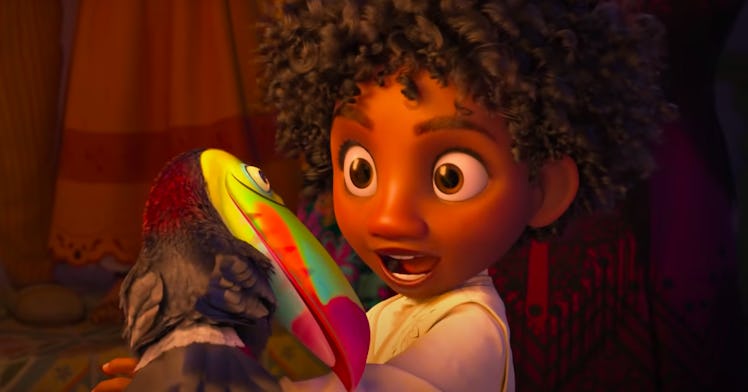A Toddler Saw His Twin on ‘Encanto’ and His Reaction Is the Sweetest
“I honestly think he may have believed he was actually seeing himself because of the resemblance."

Encanto has become the latest Disney classic, as kids (and adults) all around the world have gone crazy for the story of the Madrigal family and their enchanted Casita. But a little boy named Kenzo had a very special reason for feeling connected to the film, as the two-year-old bears a striking resemblance to Antonio, the youngest member of the family who has the ability to speak to animals.
Kenzo was watching the movie with his parents, Keith Brooks and Kaheisha Brand, who immediately noticed the similarities but wondered if their son would recognize his onscreen doppelgänger. It turns out he did and was delighted to see a character who looked so much like him. As Kenzo watched the movie, he clapped along when Antonio appeared.
“I honestly think he may have believed he was actually seeing himself because of the resemblance between him and Antonio,” Brand told Romper.
It’s understandable that Kenzo would wonder if that was actually him in the movie, as both he and Antonio really are the spitting image of each other. Brand said it was special getting to see her son be represented in a Disney film, especially because it was an experience that so few children of color had in the past. So her son feeling a kinship to a character in a movie as big as Encanto meant as much to her as it did to Kenzo.
“It means the world to me, again, I didn’t have the same experience growing up,” Brand told Good Morning America. “I do believe there is power in representation and it does empower young black and brown children.”
Kenzo’s dad said that Encanto has become his son’s favorite movie and spoke to what a movie like this means for him and for so many other kids around the world.
“It made me feel emotional to know that my son was able to see this and have that experience,” Keith said. “And for so many other Black and brown boys and girls to be able to have that same experience.”
This article was originally published on